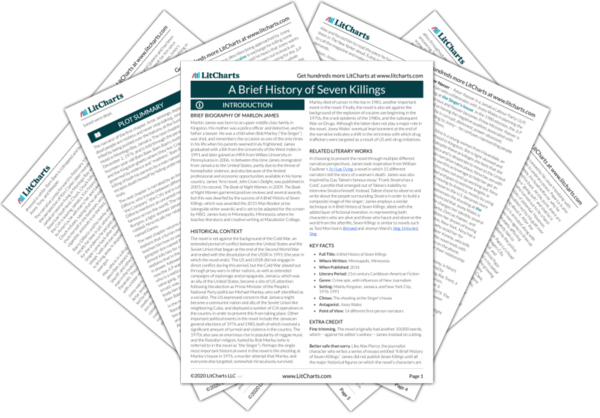Previous
Part 3, Chapter 2
|
Previous
Part 3, Chapter 2
|
A Brief History of Seven Killings: Part 3, Chapter 3 Summary & Analysis |
Next
Part 3, Chapter 4
|


Upgrade to unlock the analysis and theme tracking for all of A Brief History of Seven KillingsA Brief History of Seven Killings!
Get LitCharts A+